So that was 2020!
For a few years now, I’ve started each year by writing ‘state of science fiction’ publishing posts in which I talk about trends I’ve seen and project them into the future. [#1]
For the most part, I’ve been proved correct. For example, a few years ago I mentioned the rise of NewPub small publishers with radically different business models from OldPub, the likes of LMBPN, Podium, and Chris Kennedy Publishing, for example. 2020 saw these small presses go from strength to further strength, especially in space opera and urban fantasy. Aethon Books had a very good year and Galaxy’s Edge Press cemented their position as a publisher of significance that is here to stay.
But these trends have been coming for years. 2020 was different. I think it will lead to a step change. In fact, step changes, and the reason the changes will be so big is because the big legacy publishers are going to change. Maybe the transformations won’t surface in 2021, but they will be gestating out of sight.
I foresee changes that might not have come about during my lifetime now being compressed into the course of the next five years.
I’m going to write this year’s state-of-publishing in three parts. I’m writing this on Dec 31st, 2020. Breaking it up into three parts will give me a chance to finish off the last of the Christmas sherry and the stollen between writing these articles.
This first post will be about this step change and a quick tour of my personal 2020.
The second will delve into the causes of these changes and why they will be so impactful.
The third will look ahead to predict what’s going to happen over the next five years and also predict what it means for me.
To make it more interesting, I’ll pose a question to which the question will hopefully become clear by the end of the third post.
I write these words just six weeks short of marking my first decade as a full-time writer and publisher. How have I managed to do that?
At the start of 2011, I seeded my new venture with a thousand dollars and I only ever drew down on half of that sum. So I’ve hardly spent my way to success. I’ve only spoken at one science fiction convention about books, and that was at an event really about a video game. As far as I’m aware, my nineteen novels have clocked up a total of one traditional book review outside of friends saying nice things on their websites, and that was after I’d already sold over two hundred thousand copies. My total sales through bookstores are in single figures. Years ago, I stopped using ISBNs and marked my existing books as out of print (even though they aren’t) so that bookstores wouldn’t waste my time and money by ordering books from me.
In 2010, my approach would have been regarded as madness.
Now it is a fairly standard route for science fiction authors who earn a living from their writing.
In part 3 we’ll see how that was possible and why that’s about to have a big impact on publishing.
What’s driving the change?
There are plenty of triggers to play with. #BLM. #MeToo, Cancel Culture, and plenty more.
Some say publishing is becoming more diverse, letting in a wider range of viewpoints. Others say it’s becoming more intolerant and exclusionary, in which ever more viewpoints are being suppressed. Personally, I think both trends are happening simultaneously. And they are both important.
However, I think the biggest trigger is COVID-19.
At various times, physical bookstores were closed down due to the pandemic. Those that weren’t suffered from lowered footfall due to the reluctance of some people to go into public for unnecessary reasons.
The result was the same across nearly all major book publishers. There was a bookstore rebound as restrictions lifted but what’s interesting is what happened before then. Sales at bookstores cratered. And as a result, publishers reported higher profits.
The extent varied from publisher to publisher, but across the bigger operations, their financial reporting reported the same result.
It was a rude slap in the face to the large traditional publishing mindset. It’s going to wake up some key people to something that most publishers figured out years ago.
Bookstores need book publishers.
But book publishers don’t need bookstores.
I’ll say that again because it might be surprising to some people. The OldPub publishers — at least those who belong to the American Association of Publishers or the Publishers Association in the UK — collectively reported sales were up and margins up even higher.
That’s not true for every small publisher, some of whom were hurt very badly by COVID. Nor for individual authors who had been working for years toward a book launch in 2020 that was torpedoed by the effects of the virus.
But not the big beasts of large traditional book publishers. In 2020, they learned they don’t need bookstores in order for readers to find and buy their books.
And that’s a big deal, because the world of Anglo-American publishing — especially adult fiction — is about as conservative as it’s possible to be. And according to the OldPub worldview, what happened to their bottom lines when the bookstores closed is impossible.
If I were feeling uncharitable, I could imagine that in the dying days of 2020, across Manhattan and central London, publishing executives would be nursing crystal tumblers of whisky and soda at their mahogany desks. They would be contemplating the tumultuous business year with but a single thought in their heads.
Does not compute.
In fact, I think that Does Not Compute moment will have happened months earlier.
And it won’t have taken place in the expensive head offices in Manhattan and central London because everyone was working at home. And doing so successfully.
But OldPub’s conservative worldview is so strong that if their 2020 sales reports were the only challenge, they would dismiss it as an aberration and Never Speak of it Again.
But they won’t because there are big changes happening elsewhere in the world of entertainment publishing that are too big to ignore.
In part 2, I’ll briefly look in a little more detail at what publishers were reporting and then consider the other big challenge to OldPub’s Standard Model.
But before then, I know many of you read this blog to see how I’ve been getting on. It is my name on the title, after all.
So, for those kind people, a few words about my 2020 and what’s happening for me next year.
I don’t get out much. I’ve only been to America once: a day trip on a visit to see my Canadian brother. So attending the FantaSci convention in North Carolina was going to be a big adventure for me. I was looking forward enormously to meeting my American friends, fans, and co-workers.
If it had been planned for a week earlier, I would have gone. But international travel shut down and the event was canceled.
Then I became very ill and couldn’t work. I think it was COVID, but the health guidance at the time was unless you were dying, stay at home. So I was never tested and can’t be sure.
All in all, a bad start.
Despite which, I had a solid run of writing between November 2019 and June 2020, in which I wrote two and a half large Four Horsemen Universe novels featuring my Midnight Sun characters. I also wrote Chris Kennedy’s Golden Horde characters in the book we co-wrote, which was a great privilege.
These titles were Endless Night, The Dark before the Light, and One Minute to Midnight. The first two were published immediately in paperback and e-book from Seventh Seal Press. Superb sounding audiobooks published by Podium Publishing are available for the first two titles with the third coming very soon.
I also wrote a short story featuring anti-hero Steve “Stiletto” Caldwell. It will appear in an anthology next year and is a tester for what might become a new book series.
I put together two Human Legion box sets. They collected all novels, all the short stories for which I had the relevant rights, several articles, and some new material.
I had no idea how much work it would be to put together, but the box sets sold surprisingly well, and has introduced plenty of new readers to what is now an old series.
Talking of Human Legion, the audiobook for Human Empire has made slow progress. We’ve recorded the entire novel and it sounds brilliant, but there are still corrections to be made. It will be out in 2021.
For the last few months, I’ve been reworking the Chimera Company stories that came out in 2019. So far I’ve written one and a half novels and begun work on another. The whole series will come out every five weeks or so starting February 5th, published by Theogony Books.
I’ve readied a Sleeping Legion box set for release in 2021. Some of the new material is done. I’m waiting for new artwork and hopefully a new Lance Scipio short story.
2021 will be my 10th anniversary doing this full time. I’ll probably write something to celebrate it at the time. Since 2019 was a bad year for me, sales wise, it’s pleasing that 2020 was a step back up toward where I want to be. I’d hoped to be doing better than this after a decade, but it’s a baseline to improve on for next year.
In numbers, I sold 22,000 copies of my books over the past year. And since book sales are my only way to pay the bills, the money figure is important too. That was $36,000 of income. Disappointing, but livable.
I finished my first decade with total sales of somewhere between quarter of a million and three hundred thousand.
Next year, if the five Chimera Company relaunch novels sell well, I’ll definitely want to play more with that universe. Not least, because they’re a lot of fun. I would like to write some more Four Horsemen Universe books too.
I also have three ideas for new book series I would love to write.
And I have a project with JR Handley that might come to fruition. And might not. It all depends on how the planets align, but I would say it’s a very strong possibility.
I’ve certainly never had a problem imagining ideas for stories!
It’s been a bruising year in so many ways. I hope you got through okay and since you’re reading my personal blog, I thank you for your support.
When the books are not selling well, and the Amazon reviews are not good, writing can be a very psychologically tough and lonely business. So I appreciate most of all the supportive personal messages kind readers have taken the time to send me. I am forever humbled when I learn that books that I wrote for my own enjoyment have touched some of you in ways that are profound.
Tim
Footnotes
[#1] These posts on publishing are primarily about the Anglo-American market because those are the markets where I pay close attention to trends. That, in turn, is because those are the markets where I earn my living. I’m proud of my readers from elsewhere in the world, but it’s in the Anglo-American market where I either earn enough to put food on our table and a roof over our head, or I do not.
When I say Anglo-American market, I’m referring to the regions where books are sold. Increasingly, authors are not themselves citizens of these countries. In the long run, I think that’s an important trend, but it wasn’t one that dominated in 2020, nor will it in 2021.






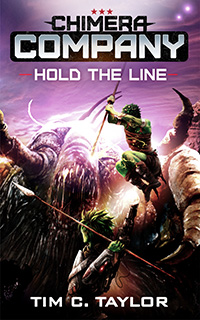
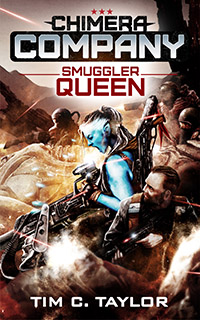

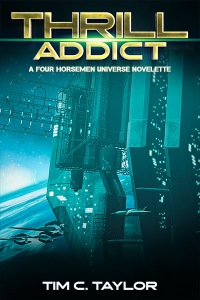
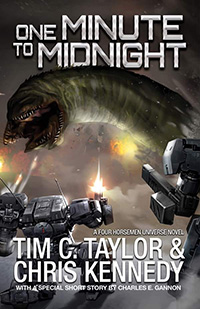




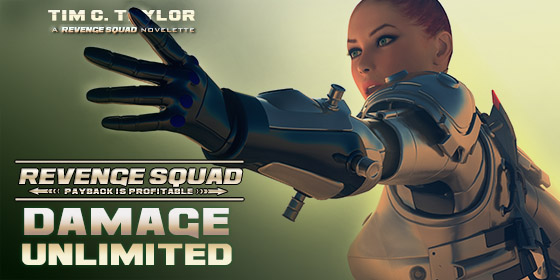

Pingback: SF Publishing in 2020: part 2 of 3 | Tim C. Taylor